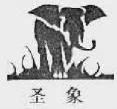Unitalen Representing Power Dekor Group in Suing Trademark Infringement of "圣象智家" Won Protection of Judicial Determination of Famous Trademark Again
September 19, 2024Case brief
Power Dekor Group is the prior right holder of the trademark and name "圣象" (Shengxiang), and is entitled to the exclusive right to use the series of trademarks " " on the goods of "Floor Boards" etc. in Class 19. After long-term extensive use and publicity activities, the plaintiff's brand "圣象" has won very high popularity and reputation in China, has been awarded the "No. 1 in Sales of Similar Products in the National Market" for 18 consecutive years, and has been evaluated as the "China's 500 Most Valuable Brands" for multiple times. The brand value of "圣象" has continued to grow from 34.568 billion yuan in 2017 to 85.856 billion yuan in 2023.
" on the goods of "Floor Boards" etc. in Class 19. After long-term extensive use and publicity activities, the plaintiff's brand "圣象" has won very high popularity and reputation in China, has been awarded the "No. 1 in Sales of Similar Products in the National Market" for 18 consecutive years, and has been evaluated as the "China's 500 Most Valuable Brands" for multiple times. The brand value of "圣象" has continued to grow from 34.568 billion yuan in 2017 to 85.856 billion yuan in 2023.
The six defendants of a certain cuisine & sanitary company, a certain electrical appliance company, and a certain network company in Foshan, as well as Liang, Tan, and Li (the six defendants for short), through their respective official websites, JD Flagship Stores and specialty stores in various provinces and cities, used the word of "圣象智家", the icon " " or "
" or " " and other sued infringing marks in the goods of gas stoves and water heaters manufactured and sold thereby. Meanwhile, the six defendants, without permission, used the videos, IP images, publicity terms, and the like that were first used by the plaintiff, Power Dekor Group, as their promotional and publicity materials. The plaintiff filed a lawsuit against the six defendants for trademark infringement and unfair competition.
" and other sued infringing marks in the goods of gas stoves and water heaters manufactured and sold thereby. Meanwhile, the six defendants, without permission, used the videos, IP images, publicity terms, and the like that were first used by the plaintiff, Power Dekor Group, as their promotional and publicity materials. The plaintiff filed a lawsuit against the six defendants for trademark infringement and unfair competition.
Court judgment
Changde Intermediate People's Court of Hunan Province determined in the first instance that the six defendants' act of using the marks "圣象" and " " etc. in the sales and publicity of gas stoves and water heaters infringed the exclusive right owned by Power Dekor Group to use the famous trademark "圣象", and the six defendants were ordered to compensate for economic losses of 2 million yuan and other reasonable expenses.
" etc. in the sales and publicity of gas stoves and water heaters infringed the exclusive right owned by Power Dekor Group to use the famous trademark "圣象", and the six defendants were ordered to compensate for economic losses of 2 million yuan and other reasonable expenses.
Typical significance
This case is typical for trademark infringement committed by free riding a famous trademark, and the way of infringement is diversified. The first instance judgment in this case safeguarded the rights and interests of the company's famous trademark and, to a certain extent, deterred other potential infringers through the high compensation, which was conducive to curbing the "free-riding" and other behaviors.




